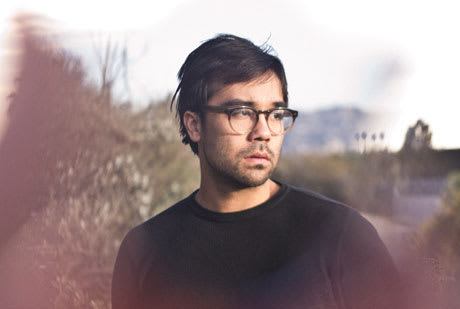Daizo is an exceptionally absorbing listen. Rarebit (aka Justin Hopkins) demonstrated on his Destroyer EP last year that he could hang with avant-groovers, somewhere left of modern day Gang Gang Dance, in mixing clattery percussive samples with a thick puree of melodic instruments. His debut album finds him exploring more of the latter than the former. The first listen reveals music that flirts with ambient sounds within post-rock peaks and valleys. However, closer inspection reveals eddies within the smooth flow, keeping things interesting moment to moment. As one appreciates the album over a longer period, the kinship between sounds from track to track lends a symphonic, long-form unity. Gradually, jazz becomes a key ingredient of the mix, most overtly in "Convergence," in which a barely breathed through saxophone's pads turn into damp-sounding percussion, à la Colin Stetson, before giving way to more full bodied, though heavily cut-up, melodic statements over increasingly intense beats. The devil is most certainly in the details. Seldom have I looked forward to picking a composer's brain as much as Hopkins'. While his method and intent remain inscrutable to the listener, that doesn't diminish the enjoyment of the final product one bit.
What's the concept behind this album?
The idea behind it came from a process of figuring out a new way to produce an album, at least for me. I'd been really into electronic cut-and-paste stuff because I didn't have a lot to work with. I had crappy stuff; I didn't have the stuff I have now to record live musicians. It's what I wanted to do, but instead I had to make this lonely electronic music. After I did the EP, I was sick of electronic music and I wanted to do all live stuff, but in a different way. I wanted it to be a series of sessions and then develop families of sounds. Through the process of, more and more sessions would pile up and [I would have] the best aspects of the sessions compiled into a demo and then have people playing along. This is very much a collaborative effort, with me steering it.
Do you feel that many of the people on non-projects are instrumentalists?
I think we're all coming from that place, where electronics can easily express what we can do. We're all pretty well trained in our different fields, but we're all misfits. In that sense, I don't feel we all set out to make electronic music; it just kind of happened.
(Non Projects)What's the concept behind this album?
The idea behind it came from a process of figuring out a new way to produce an album, at least for me. I'd been really into electronic cut-and-paste stuff because I didn't have a lot to work with. I had crappy stuff; I didn't have the stuff I have now to record live musicians. It's what I wanted to do, but instead I had to make this lonely electronic music. After I did the EP, I was sick of electronic music and I wanted to do all live stuff, but in a different way. I wanted it to be a series of sessions and then develop families of sounds. Through the process of, more and more sessions would pile up and [I would have] the best aspects of the sessions compiled into a demo and then have people playing along. This is very much a collaborative effort, with me steering it.
Do you feel that many of the people on non-projects are instrumentalists?
I think we're all coming from that place, where electronics can easily express what we can do. We're all pretty well trained in our different fields, but we're all misfits. In that sense, I don't feel we all set out to make electronic music; it just kind of happened.
